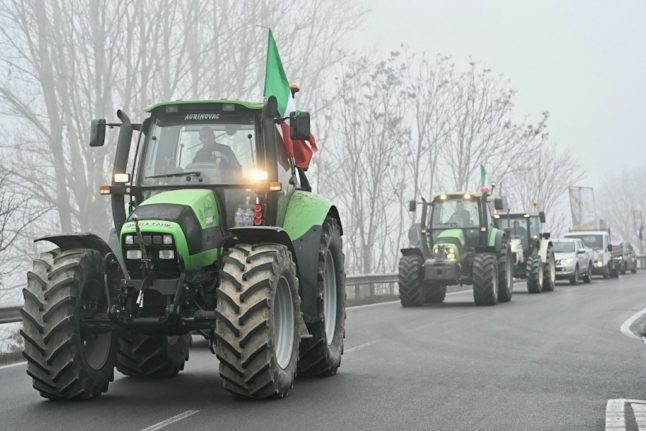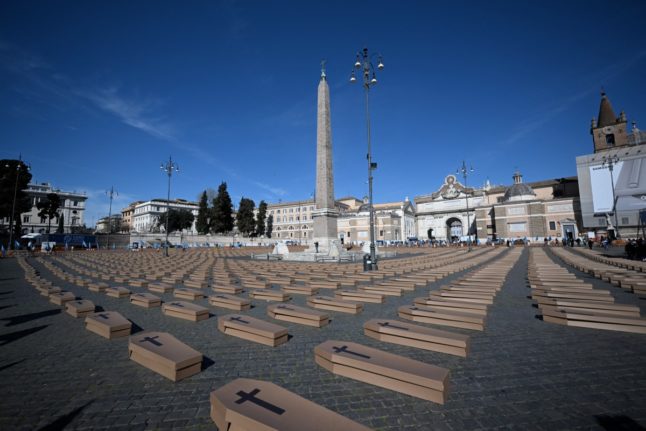Impromptu protests have sprung up across Italy in recent days, from Sicily to Trento, with reports of convoys blocking roads now regular occurrences – although they have yet to reach the levels of farmer demonstrations in France, Germany or Belgium.
“We are ready to block everything betrayed by Europe” declared one placard at the protest near Melegnano outside Milan.
READ ALSO: Farmers’ protests block roads in Italy as unrest spreads in Europe
The protesters said they were angry about European Union regulations, and the impact of inflation and taxes on their products. They have demanded that their mortgages be suspended.
“Europe imposes rules on us that make no sense. We can no longer make a living… we want to make more money and have our products valued for what they are,” said Luisito Naldi, one of the organisers of protests in northern Italy.
“We’re tired,” he told AFP by telephone, saying that things had become so difficult that some farmers in the south were committing suicide.
He said they were seeking a meeting with Prime Minister Giorgia Meloni’s government.
“We are protesting for the same reasons that they demonstrate in France, in Germany, Poland and Romania”, said Naldi, adding that “the demonstrations will continue until they invite us to Rome”.




 Please whitelist us to continue reading.
Please whitelist us to continue reading.
Member comments